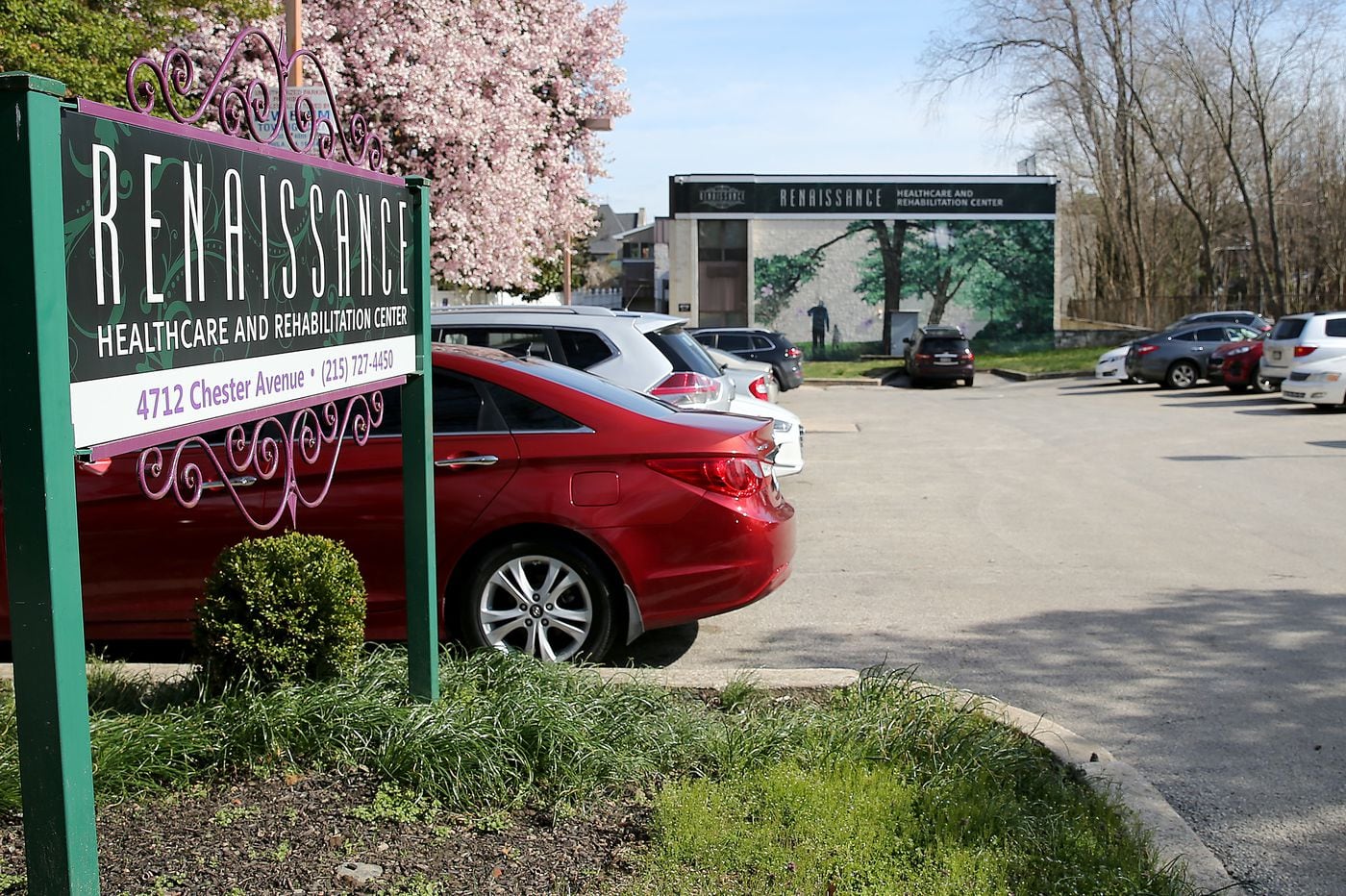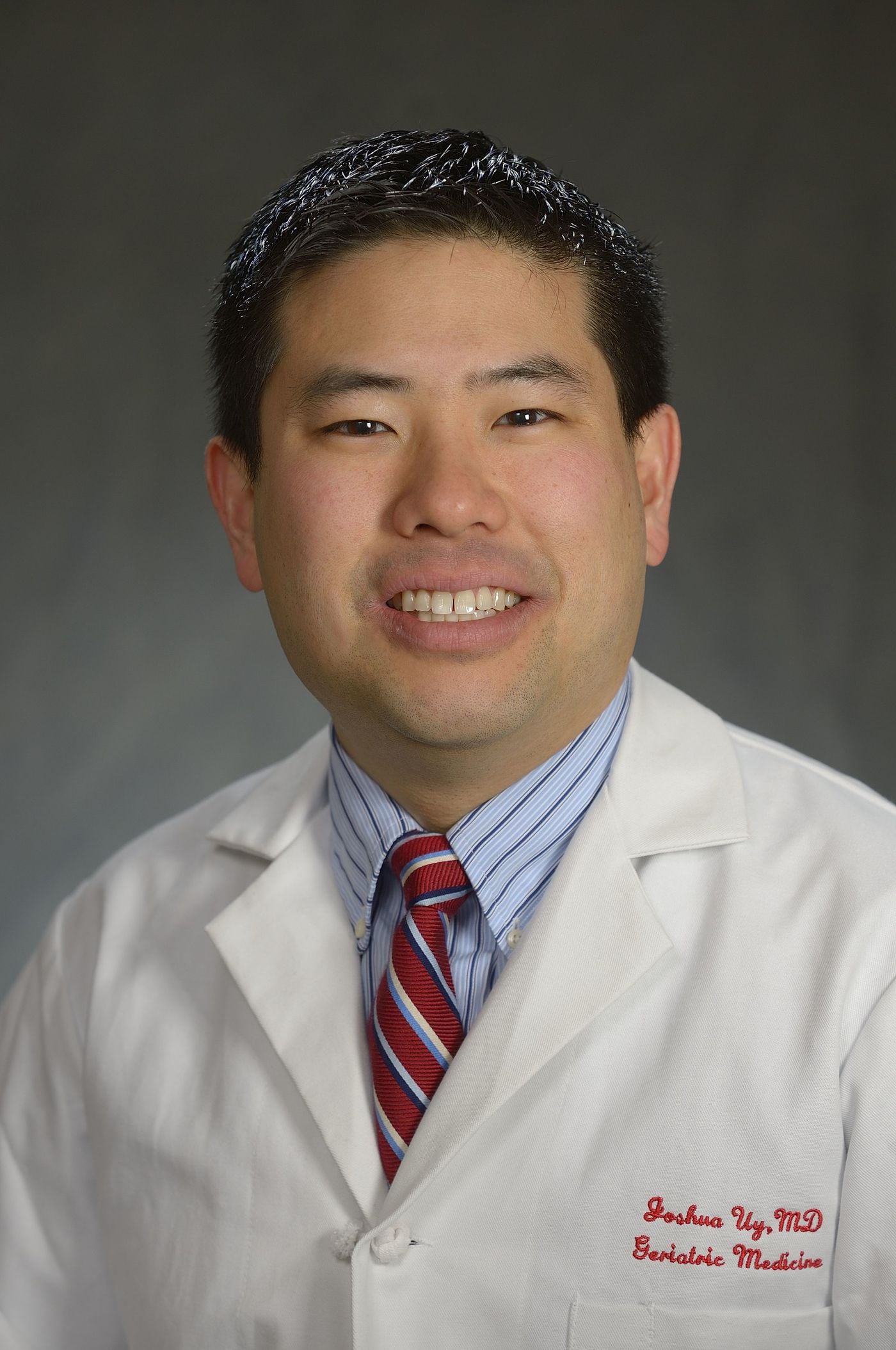
Back in March, Joshua Uy, a Penn Medicine geriatrician who is also the top doctor at a West Philadelphia nursing home, thought he was ahead of the curve in protecting the facility’s residents from a new virus that had raged through a nursing home in Washington state.
He and his administrator, Sunil Chacko, restricted visits, stopped group activities, and didn’t let outside vendors or transport workers go beyond the lobby of Renaissance Healthcare & Rehabilitation Center. Staff members were tested for fever before shifts and asked about symptoms.
“We thought we were doing everything that Kirkland hadn’t done,” said Uy, referring to Life Care Center of Kirkland, the facility tied to 40 deaths of residents and visitors and 129 coronavirus infections.
All of the infected residents lived in a 30-bed unit for long-term residents. Uy has known some of them for a decade. He’s met their children and grandchildren.
He was on quarantine himself for what turned out to be a cold when the first case was discovered in a hospitalized patient who later died. He immediately called West Coast medical directors who already had experience with the disease and was soon cleared to return to work.
“It was easily the hardest week of my professional career," he said. "I have never dealt with an infection like this before. It feels like a professional failure when you’ve put so much effort into keeping the virus out, and it gets in anyway.”
Now, two weeks into personally battling coronavirus, he has developed a powerful respect — and fear — for this tiny new enemy. He estimates that over the past week, he has talked with almost 50 other medical directors to share what he’s learned. “The best advice is coming from word of mouth,” Uy said. “This is changing so fast.”
He tells his fellow doctors they have days, at most a week, to get their acts together. The “terrible asymptomatic spread” of coronavirus — some experts now think that most cases have no symptoms — makes it exceptionally difficult to defend against.
According to state health departments, 132 of New Jersey’s 375 nursing homes had at least one coronavirus case, and 79 residents had died as of Friday. Meanwhile, 92 of Pennsylvania’s 695 nursing homes had reported a total of 200 confirmed cases as of mid-week. Pennsylvania is not reporting nursing-home deaths. Because of nursing home residents’ advanced age and poor physical health, they are especially vulnerable to the new virus.
Nursing homes, Uy said, are used to trying to keep viruses like the flu out. Tough containment measures, such as blocking visitors and stopping activities, usually don’t start until after the first, or “index," case, in part because “everything about a nursing home is designed to be social.” That’s too late for this virus, he said.
In fact, starting a week or two before the first case may be too late because of the two-week incubation period. “Once you wait for that index case, there’s probably 10 or more in the building,” Uy said.
After he knew Renaissance had a case, he had to make the “hard emotional pivot” from putting all of his energy into keeping the coronavirus out to working like crazy to keep it from spreading. He’s begging his fellow nursing home medical directors to make that strategic change now. “If their only plan is to keep it out, they’re unprepared,” he said. “The best way to keep it out is to assume it’s already in the building. … Whatever you think you’re going to do once it’s in your building, start doing it now … because the virus doesn’t play nice. You have to get ahead of it.”
Uy doesn’t know how the coronavirus penetrated Renaissance. The most likely sources were staff members or patients who go out for dialysis three times a week. Dialysis patients have become infected in other locations, Uy said, and some of his patients have had symptoms. “I think it’s an entry point that people have to think about,” he said. Dialysis centers now treat all Renaissance patients as if they were infected, he said. In the week before the first case, there had been no new admissions, which are also a potential source of infection.
Uy advises nursing home leaders to soak up as much advice and help from others as possible. Workers from Philadelphia’s Department of Public Health very quickly did widespread testing at Renaissance. Uy learned what doctors in Washington and California had done and asked his colleagues at Penn and two other physicians at Renaissance for help in developing treatment protocols.
He began asking patients and their relatives how they would feel about spending two weeks on a ventilator, a common fate for those who suffer the most severe coronavirus symptoms. Within a couple days, he insisted that every staffer wear masks and face shields at all times in the building. Uy said that Renaissance, unlike many nursing homes, has enough protective equipment. The nursing home’s owner made sure there was a respiratory therapist in the building.
Some hospice programs have not been working directly with patients who have COVID-19, the disease caused by coronavirus, so Uy talked with Penn’s hospice program about supporting grieving family members. That, he said, has “made a huge difference.”
So far, there have been no positive cases outside of the initial wing. “I don’t rest easy about that, though,” he said. “I just don’t trust this virus.”

